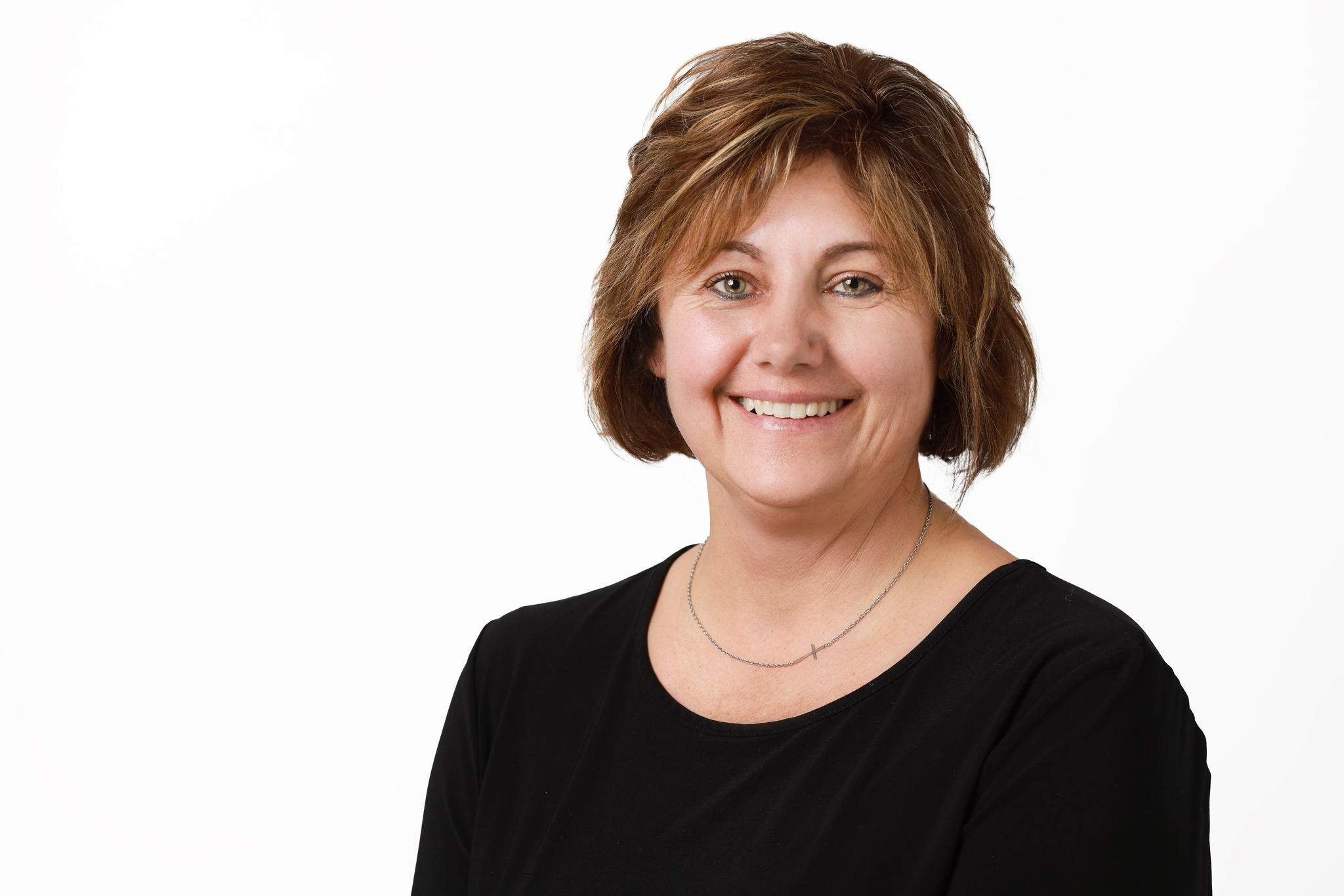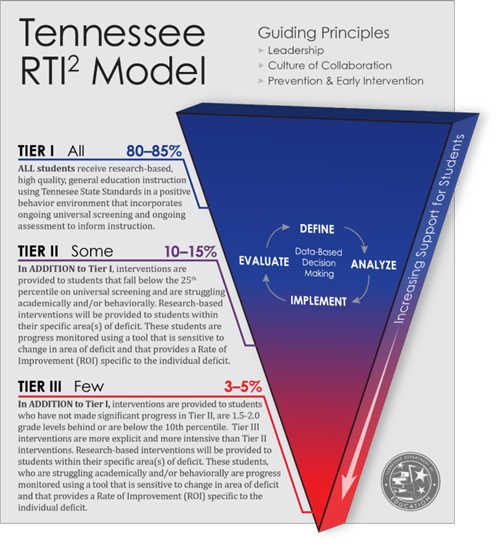RTI - Response to Intervention
RTI - Response to Intervention
Supporting All Students.
RTI stands for Response to Intervention. The word response is an action, and it does not define students. When you hear or see the word intervention, it may seem a little unsettling. The PCSS RTI team does not want families or students to panic when they see that their child needs intervention. Intervention is the way we support all students academically to help them meet academic goals. RTI/WIN groups are the prescription to increase academic health and prepare them to be Future Ready.
RTI integrates high-quality teaching and assessment methods in a systematic way so that students who are not successful when presented with one set of instructional methods can be given the chance to succeed with the use of other practices.

Melanie Bussell
RTI Supervisor
Email Melanie
Rachel Manis
Learning Loss / TN ALL Corps Facilitator
Email Rachel

RTI Tiers
Tier 1- All students receive high-quality instruction in every classroom, every student is learning. In Tier 1, we identify skills that need improvement to make sure every child is getting what they need. For example, small group instruction. The ultimate goal is that all student's needs are met and they receive everything they need in Tier 1.
Tier 2- If any skill is identified in Tier 1 and the student needs extra support, Tier 2 interventions are specifically targeted to meet students' needs and are designed to help students excel in the classroom in combination with high-quality instruction in Tier 1 (30 minutes of learning time).
Tier 3- A few students will need intensive support and intervention. We will give these students extra doses of instruction in smaller groups (45 minutes versus 30 minutes).
Please note: Different schools call WIN Groups something different (Power Class, etc.).
WIN stands for “What Individuals Need”. These groups are to help all students increase their achievement performance levels. Whether your student is 35% proficient or 85% proficient. This includes students who are gifted, enrichment, at-risk, and skill intervention. We believe all students can improve.
RTI FAQ
Who leads RTI time for my child?
PCSS leverages talent within each school for RTI and WIN groups. All schools have dedicated interventionist teams, representative of teachers and leaders throughout the building. These teams meet and discuss students who may need additional support and review each student's supporting data to determine the best course of action. Parents/Caregivers are communicated with at each school for a team approach.
How are students identified?
In the PCSS, we use several pieces of information to determine what type of assistance is needed for each child, not just Universal Screener* results.
These groups are made using percentiles ranging from 1%-100% on multiple screeners and data. If we can identify gaps in elementary and middle school, as students enter high school and prepare for the ACT, ASVAB, Industrial Certification exams, etc. they have the possibility of scoring at levels that improve their chances of receiving free money and financial assistance for post-secondary education.
*All PCSS students take Universal Screeners three times a year (in the areas of reading and math). Student results on these screeners allow teachers to identify specific areas that students need enhancement. Results on universal screeners can tell us if students possess the skills necessary to perform as expected on state assessments. You will often hear the phrase “percentiles”. A student’s percentile on Universal Screeners is the identifying factor that lets us know which areas need enhancement.
Why do we need RTI for ALL students?
If we can identify gaps in elementary and middle school, as students enter high school and prepare for the ACT, ASVAB, Industrial Certification exams, etc. they have the possibility of scoring at levels that improve their chances of receiving free money and financial assistance for post-secondary education.
What is the difference between RTI-A and RTI-B?
Each school has WIN Groups, but they may call it something different. This is their way of identifying small group time.
WIN stands for “What Individuals Need”. These groups are to help all students increase their achievement performance levels. Whether your student is 35% proficient or 85% proficient. This includes students who are gifted, enrichment, at-risk, and skill intervention. We believe ALL students can improve.
